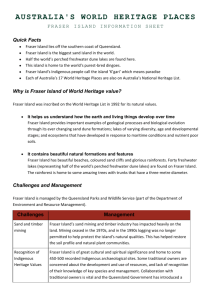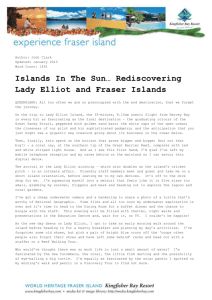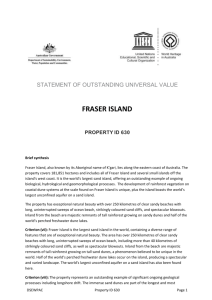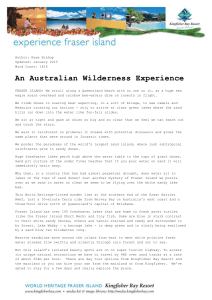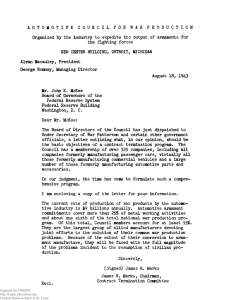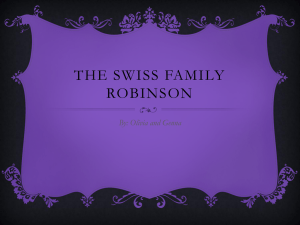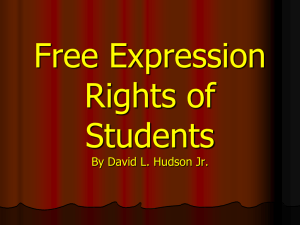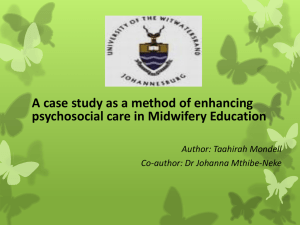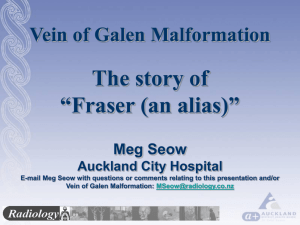Fraser Island
advertisement
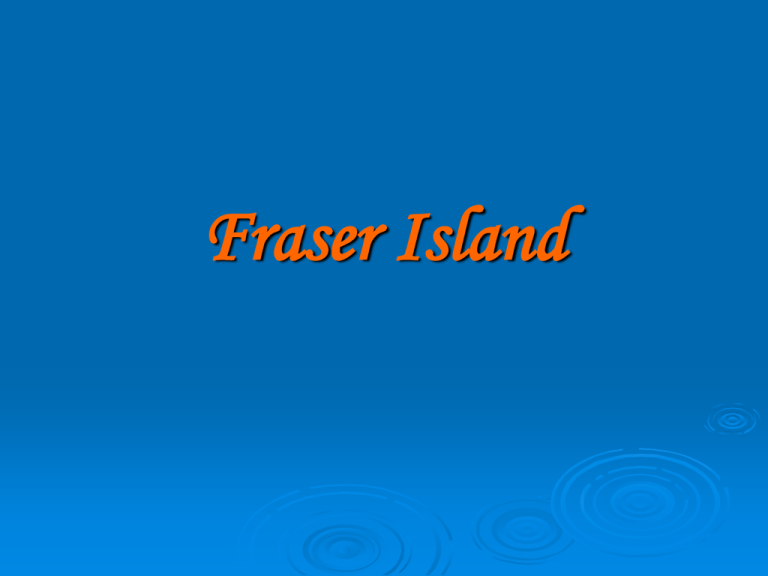
Fraser Island Fraser Islands the largest sand island in the world breathtaking beauty and natural attractions holiday accommodation and tours. 600,000 visitors come to Fraser Island each year 144 km coast line the only place on the planet where rainforest grows from sand. Fraser Islands 75 Mile Beach 75 miles long Curious!! constant movement of sea and sand not exactly 75 miles long 75.173 Mile Beach Name. Version #1. 'K'gari' (the Badtjala people's language) “Paradise” Aboriginal legend When humans were created and needed a place to live, the mighty god Beiral sent his messenger Yendingie with the goddess K’gari down from heaven to create the land and mountains, rivers and sea. K’gari fell in love with the earth’s beauty and did not want to leave it. So Yendingie changed her into a heavenly island – Fraser Island. Name. Version #2. Captain James Fraser and his wife, Eliza Fraser, were shipwrecked on the island in 1836. Captain Fraser died but Eliza was rescued off the island. Eliza later made money travelling around England and Australia telling her story of the events that had occurred while the survivors of the ship were on the island. Europeans James Cook 18 - 20 May 1770 Matthew Flinders - past the island in 1799, and in 1802 In 1836, survivors from the shipwreck of the 'Stirling Castle‘ + Captain James Fraser + his wife Eliza Fraser (6 weeks before being rescued) Climate o o o o o o o moderate 14-28 degrees Celsius rainfall: the 1.5 metre mark the hottest: November and March the wettest: January and March the driest: August and September the coolest: June and August Lakes 40 perched dune lakes: Lake Wabby, Lake Mc Kenzie, Basin Lake, Lake Wabby, Bogimbah Creek, Eli Creek, Boomanjin, Boomerang Lake, …….. individual character - from lakes stained red with tannin to others with pure white sand and crystal clear water Lakes Nature (nature lover's paradise ) over 300 bird species, dingos, dugongs, turtles, sharks, hump back whales, foxes, possums, snakes, turtles and wallabies, goannas, snakes, dragons, geckos, skinks and frogs, etc … the full spectrum of the plant life cycle BUT!! Dingo the purest strain of Dingo in Australia! live in the beaches, bushland and rainforest accustomed to the locals and thousands of tourists Dingo lifespan: 10 years breed: only once a year litters: 4-6 pups. colour: sandy yellow a scavenger: steals anything unguarded that smells yummy food: from berries to small animals References http://en.wikipedia.org/wiki/Fraser_Is land http://www.fraserisland.net/ http://dkd.net/fraser/
